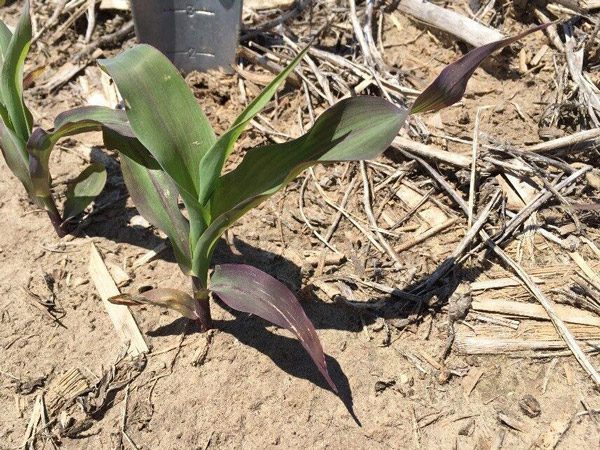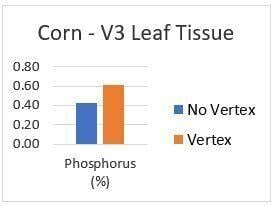Are your crops getting enough phosphorus? What to do
USDA estimates for 2016, the latest reporting year, show 9.39 billion pounds of phosphate fertilizer were purchased and applied on fields. It is well known that only a small fraction of this applied phosphorus is immediately available for use by the plant.
More then 7.5 billion tons of phosphate fertilizer becomes attached to the soil particles and is only available typically due to the action of microorganisms. This is where enhanced microbial formulations can produce a positive impact on phosphorus availability to the plants.
The deck seems stacked. What do we do?
Doug Kremer, CEO of TerraMax, says while phosphorus is essential for plant growth and optimum yields, it poses challenges because it gets bound up in the soil. Negatively charged phosphorus binds with positively charged soil components, such as clays and minerals, and becomes unavailable to plants. This limits crop yields and impedes plant growth, particularly in cold, wet soils.

Purple color indicates phosphorus deficiency
Photo provided by TerraMax
One way to ensure phosphorus is in a plant-available state is to use microorganisms — bacteria or fungi — to help release the phosphorous from particles and soil it would otherwise bind to. TerraMax discovered that by using a mixture of bacteria proven to release or solubilize phosphorus, they could overcome the bonds in the soil to free the phosphorus from the soil particles. And this naturally occurring method to unlock phosphorus is facilitated and can be increased through the use of the products Micro PSB and Vertex, which also includes the PSB strains.
Micro PSB to the rescue
Micro PSB, created by TerraMax, is an industry-leading, multispecies group of phosphorus solubilizing bacteria that can be added directly to a starter fertilizer and applied in-furrow on the field. Micro PSB delivers essential crop nutrients by utilizing three advanced modes of action.
- Provides a microbiological kickstart with multiple strains of bacteria.
- Improves solubility of phosphorus in soil into the soil solution.
- Catalyzes the release of phosphorus from the soil particles.
Micro PSB’s first mode of action increases the available phosphorous in the soil. This leaves more phosphorus available for uptake and increases overall nutrient efficiency within the plant, leading to healthier plants and improved yield. The product works with a range of soil pH levels, organic matter levels and cation-exchange capacity levels. This helps balance out nutrients in a variety of soil types and conditions.
Proven technology
Since phosphorus is a key nutrient for crops and more than 50% of production acres are shown to be deficient, many growers turn to phosphate fertilizer.
“Farmers are currently putting a lot of phosphorus on their fields, but the plant is only able to utilize a fraction of it,” says Kremer. “Only 1 out of 6 growers are using a phosphorus efficiency product to help maximize that fertilizer uptake. This leaves a significant opportunity for both retailers and their growers to increase their yields and ROI for their business.”
Kremer continues, “We’ve shown in many third-party studies, Micro PSB can improve efficiency of phosphorus in the soil, increasing yields and ensuring growers aren’t throwing away valuable dollars.”
As documented in the reports from a collaborated grower in Ohio, Cory Atley, there was a 19% increase in phosphorus in leaf tissue.

Graphic provided by TerraMax
For more information about Micro PSB and other products from TerraMax, click here.
